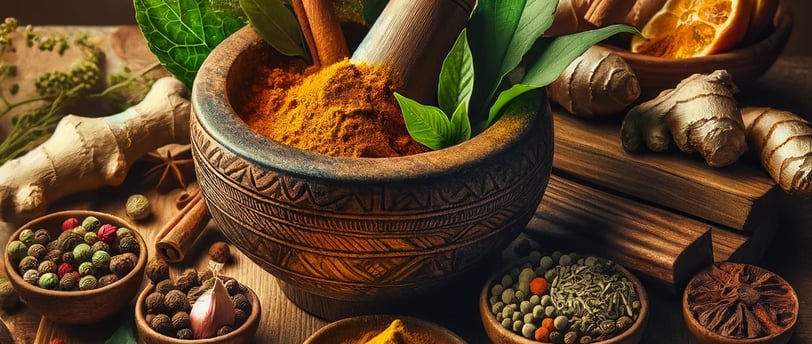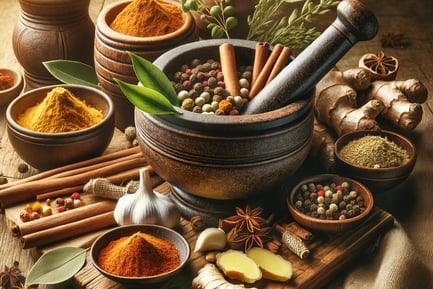Herbal Healing
Unveiling the Power of Nature's Antibiotics
FOODHEALTH


Welcome to the world of natural healing, where your kitchen doubles as a pharmacy and the herbs you usually sprinkle on your pizza can do more than just tickle your taste buds. Yes, we're talking about nature's very own antibiotics - plants and herbs that have been flying under the radar, ready to spring into action against infections. Let’s embark on a delightful journey through your spice rack, exploring the potent healing properties of everyday herbs and spices.
Oregano: Not Just for Pizza Anymore
Let's start with oregano, the unsung hero of the herb world. Rich in carvacrol and thymol, this humble herb is a powerhouse against respiratory and digestive infections. Forget the antibiotics, next time you have a sore throat, a cup of oregano tea might just do the trick. And for the adventurous, a drop of oregano oil could be your secret weapon against those pesky fungal foot infections.
Echinacea: The Immunity Queen
Next in line is echinacea, the queen of immunity. Packed with polyphenols and antioxidants, echinacea is the go-to herb for strengthening your immune system. It’s like a shield against respiratory, skin, and urinary tract infections. You can find it as dried flowers for a soothing tea or as a potent powder supplement.
Turmeric and Ginger: The Dynamic Duo
Now, let’s talk about the dynamic duo - turmeric and ginger. Turmeric, with its star component curcumin, is a known antioxidant and antifungal agent. A couple of turmeric pills a day can keep digestive issues at bay. And ginger, with its zingy gingerol, is perfect for keeping your respiratory and gastrointestinal tracts in top shape. Add it to your salad or sip it as a warm, soothing tea.
Cinnamon and Cloves: The Spice of Life
Cinnamon isn't just for your latte. This spice is a warrior against respiratory and skin infections. And cloves? These little guys are antioxidant champions. Chewing on a clove might just keep the doctor away, not to mention make your breath smell Christmas-ready.
Calendula and Aloe Vera: Skin's Best Friends
For skin troubles, turn to calendula and aloe vera. Calendula’s antibacterial and anti-inflammatory properties make it a savior for skin wounds and digestive infections. And aloe vera? It’s like a cool breeze on a hot day for burns and skin trauma.
Minty Fresh Peppermint and Soothing Chamomile
Peppermint is not just for freshening breath. It’s a viral and bacterial buster. And chamomile isn’t just a bedtime tea; it’s great for soothing mouth infections and skin irritations.
Cranberry and Rosemary: More Than Just Garnish
Cranberries aren't just for Thanksgiving. They prevent bacteria from clinging to your bladder walls, making them a must-have for urinary tract health. Rosemary, on the other hand, is perfect for respiratory and digestive infections, proving that it’s more than just a garnish.
The Bee's Knees: Propolis and Honey
Let's not forget the gifts from our buzzing friends – propolis and honey. Propolis, a bee's defense mechanism, is great for dental health, while honey, in its sugary armor, prevents bacterial growth. Just remember, honey is still sugar, so moderation is key.
There you have it – a sneak peek into nature's medicine cabinet, right in your kitchen. These herbs and spices are not just culinary delights but also guardians of health. So next time you’re brewing a cup of tea or seasoning your soup, remember, you're not just cooking; you're concocting a potion of wellness. And as always, while nature’s pharmacy is potent, it's wise to consult with healthcare professionals for serious conditions. Happy healing!



